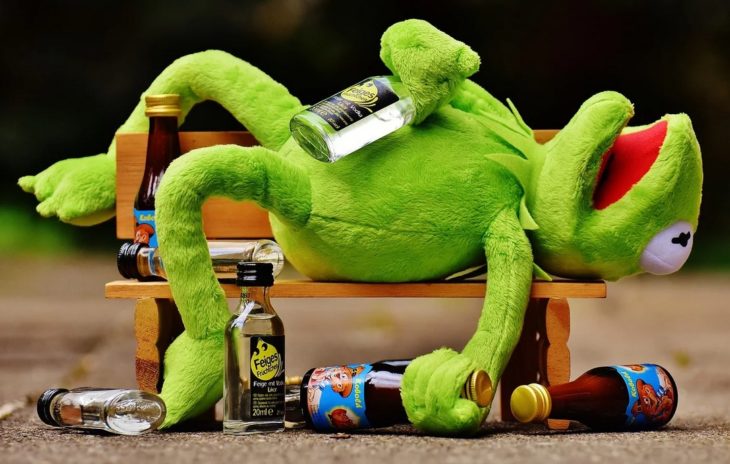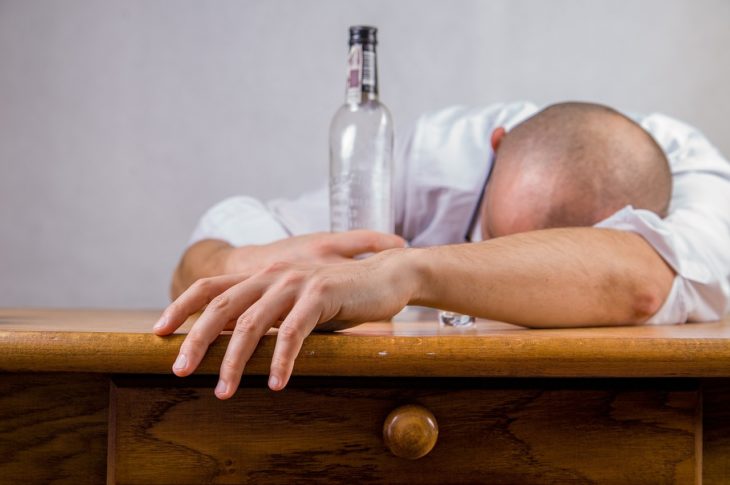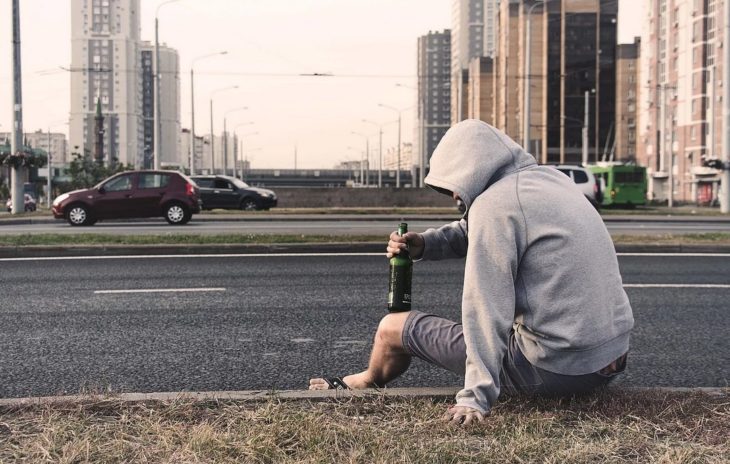Going to parties has always served a couple of purposes and that is, to see friends, dance a little, and, if lucky, score with a babe; all this is done with a drink in hand. As a matter of fact, drinking is so synonymous with parties that each festivity begins with a brief meeting, in advance, called the pre-game. The pre-game consists of a cluster of good friends who chill, by listening to music and, of course, having an alcoholic beverage as a warm-up.
After the pre-gaming’s buzz starts to descend, the party-goers move to their predetermined location; which is, probably, either at a house, bar, or club. The party animal lifestyle might be mesmerizing at first glance, however, it can lead to dire consequences. The most obvious one is an addiction to a variety of substances. Partying and of course, alcohol consumption is presumed to be one of the first steps for any addict. That’s why it’s instrumental to study how long does alcohol stay in your urine from sources like medsignals.com
There can be various perspectives regarding parties and raves in individual storylines; dependency on any substance is closely linked to addiction. The first step towards fighting this epidemic is admitting that you might need rehabilitation. According to calusarecovery.com, once the addict comes to peace with the fact that they require help, they’ll be able to take the necessary actions to get them out of the puddle they’re in. While it might be true that the majority of party enthusiasts are mere social drinkers and don’t plan on getting hooked on drugs, it is better to be safe than sorry. That’s why we have compiled for your information on how to help you get rid of the alcohol in your body. For a trusted resource full of information for passing a drug test check https://www.leafly.com/news/cannabis-101/how-to-pass-a-drug-test-guide

Source: pixabay.com
Out With the Toxins
The body requires time to detox the body of alcohol. Typically, the standard serving size of alcohol requires around an hour to be removed. Individuals and groups with higher alcohol tolerances can spend less time to detox; this can alleviate their blood alcohol concentration much more rapidly. Of course, if the amount you drink increases, your body will require a longer time to get rid of the alcohol. A regular 350 ml cocktail would usually bring the blood alcohol content of a 150-pound person to around 0.02-0.03. Nevertheless, depending on a variety of personal factors, the impact of alcohol levels in your blood can vary considerably. The size of your liver, body weight, and tolerance towards alcohol, are all factors that determine how long alcohol remains in your body. Notably, perspiration, urination, and respiration eliminate some quantity of alcohol from the bloodstream.
As long as alcohol is being broken down in the body, it can be detected. Tests for the detection of alcohol or ethanol can also identify their derivatives, in urine, breath, saliva, sweat, and blood, between 2 and 80 hours after initial consumption. Urine testing can be performed accurately for up to 24 hours after the first alcoholic beverage is consumed. Breathalyzers can also detect alcohol in your respiratory system up to 24 hours after drinking. Not to mention that even two hours following ingestion, saliva tests will detect alcohol within the body, while hair testing will identify it up to 90 days.
Some claim that the body can process alcohol more efficiently by consuming specific liquid beverages or participating in vigorous exercise, while many companies market goods that promise to quickly flush the alcohol out of your system. However, there is currently no scientific evidence to show that these methods actually work. Eating before a night out drinking has been shown to slow down the absorption rate of alcohol into your bloodstream; however that is not an excuse to drink carefree. The opposite, though, is not true, where eating after drinking will lower the alcohol level within your blood since the alcohol has already been absorbed. The only way to make sure that your system gets rid of the alcohol is to allow your liver time to break it down.
Alcohol poisoning is a major cause of death, which happens when the body is not able to process the amount of alcohol that is consumed. In the United States, there are around 9 deaths per million from alcohol each year (around 2,000 deaths in total per year), according to Drug Helpline. Men are more likely to die from alcohol poisoning than women. Beyond alcohol poisoning, other causes of alcohol-related deaths include alcoholic liver disease and liver cirrhosis. It’s also easy to forget that alcohol causes deaths by homicide, motor vehicle accidents, workplace accidents, non-alcohol poising (chemical exposure, etc.), and a range of other circumstances in which the behavioral effects of alcohol are to blame.

Source: pixabay.com
Hangovers
After drinking too much alcohol, you get a lightheaded sensation, mainly because of dehydration. The liver expends extra energy, during the party, to remove alcohol contaminants from your body. In the meantime, alcohol enhances the production of urine by the kidney, leaving your skin dry and your body dehydrated. When dehydrated, the body will have a harder time removing all the contaminants that your liver is trying to detox. Alcohol may also aggravate the lining of your stomach leading to vomiting; furthermore, it may upset your sleep cycle and cause fuzziness. Hangovers tend to be the way the body is alerting us to the dangers of excessive decadence.
A hangover is a collection of symptoms, which include vomiting, exhaustion, headaches, and unnecessary trembling. Occasionally, the blood pressure goes up, the heart pumps faster than normal, and the sweat glands overflow. Several individuals become more sensitive towards light and sound stimuli, while others experience the feeling of collapsing. Getting drunk wreaks havoc in your brain activity whilst sleeping; a hangover could cause restless nights or even no sleep at all. The nerves that control our circadian rhythms are disrupted by alcohol, which can result in a hungover person suffering from jet lag. Alcohol can cause migraines, thus some individuals may confuse an alcoholic migraine as a hangover. Here are a couple of actions you can do to help you with your hangovers.
- Taking Vitamin B6. A 30-year-old report noticed that people had fewer hangover symptoms when they took 1,200 mg vitamin B6.
- Drink either tea or coffee. Caffeine might not have magical powers against alcohol, but by being a stimulant, it might help with dizziness. However, take care as coffee does have a laxative effect and thus may increase dehydration.
- Avoid alcoholic beverages with darker colors. Studies have found that dark liquors such as rum, red wine, and tequila have a higher probability of causing hangover symptoms as compared to light liquors such as vodka and gin. The reason behind this phenomenon is that darker liquors have a higher concentration of methanol, which when broken down releases toxic metabolites that exacerbate the production of hangover symptoms.
- Drink lots of water. Alcohol encourages urination, as it inhibits vasopressin release. You may be even more dehydrated if your hangover causes nausea, excessive sweating, or vomiting. That’s why it’s of great importance to drink lots of fluids.
- Get your body some carbohydrates. Drinking can reduce blood sugar concentration, so a brain that works without enough of its primary energy source can, in theory, get fatigued and have headaches. Factually, several people forget to eat while they are drinking. A simple butter on toast with a cup of juice should do the trick.

Source: pixabay.com
There always comes a time where one has to stop for a moment and think about whether they’re drinking too much, and what they can do to flush these toxins out of their system. Chronic drinking is the source of alcoholism, and chemical alcohol is distilled from grapes and fruits and used in beer, wine, and all sorts of liquors. Alcohol is classified as a depressant, because of its inhibitory activity on the brain’s neurons; this leads to disruption in thoughts, attention, and perception. People tend to create irrational alcoholic dependencies when they feel disappointed, discouraged, or traumatized. With that being said, drinking is a fun thing to do when done responsibly; therefore, getting loads of rest, food, water, and at times medications is the sure way to get rid of the bad aspects associated with alcoholic beverages.
